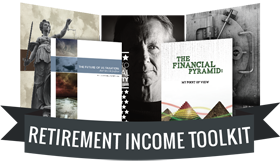Why? There is no clear path to answer the question “What are my costs going to be?” What are Congress and the President going to do with regard to the Bush Tax Cuts quickly approaching their sunset expiration dates? Speculation is that there is some behind the scenes negotiating occurring. More and more economists are saying we need at least 2 more years at the current tax rates to climb nudge the economy forward at a faster pace of recovery.
We are also hearing more and more businesses coming out with projected increases in the cost of healthcare based on the federal legislation and mandates handed down to the states. Companies by the dozens are beginning to request exemptions from the requirements of the legislation. Many are contemplating cutting health insurance from their benefits packages, thereby, pushing their employees to the exchanges. Small business makes up a significant majority of employers. Many don’t have the resources to research the 1,000 plus page health care bill to determine what the impact is to them.
Uncertainty impacts consumers as well. They too are “holding” cash. None of us know what our tax rates are going to be come 2011. Many may not know exactly how much their tax bill is going to be until they receive their first pay check in January. If you’re attempting to do a budget for personal cash flow statement for 2011, how do you fill in that blank?
Do you know what your employer is going to do with your employer provided health benefit yet? The cost of company provided employee health insurance is likely going to go up if it hasn’t already. If it has, there is no guarantee it won’t continue to rise as the mandates continue to be implemented and companies begin to understand their true costs associated with this benefit. Companies are likely going to ask employees to at least share in the increased costs. That will reduce your discretionary spending.
Uncertainty impacts both business and consumers. Business aren’t investing in capital projects or hiring new employees to grow. Consumers are holding more of their discretionary funds and not “investing” in the economy. This seems to have created stagnation in the economy. Consumer confidence and spending will truly be tested in a few weeks as Black Friday quickly approaches.
